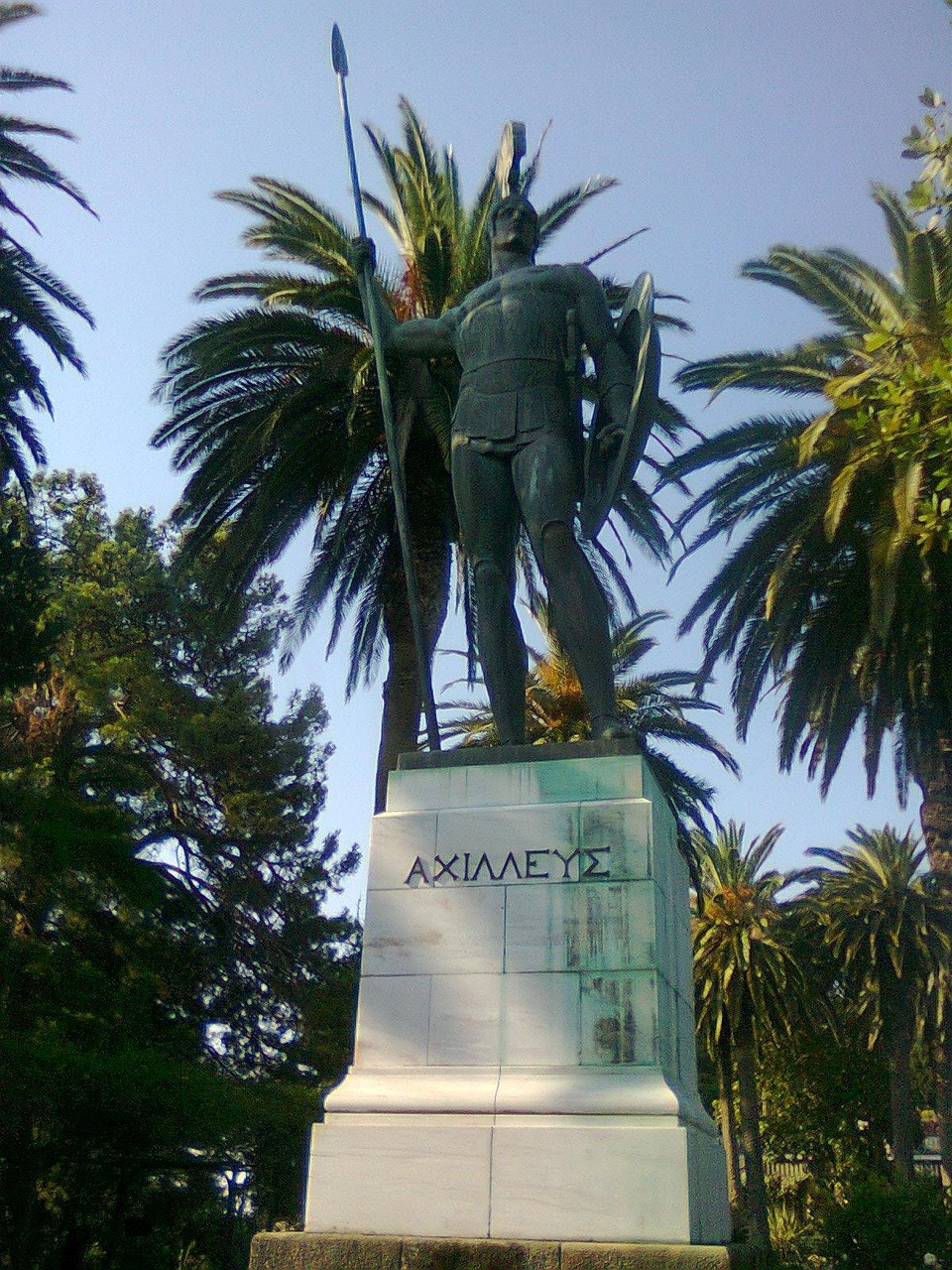Character Analyses from the Iliad
Achilles
Achilles, the renowned Greek hero, is the offspring of the immortal sea goddess Thetis and the mortal Peleus. As the commander of the Myrmidons, he stands out in the Iliad as the most formidable warrior, possessing an almost mythical invulnerability except for his heel, the part of his body his mother held when she submerged him in the River Styx to grant him immortality. His relentless desire for glory defines him; Achilles is characterized by an overwhelming pride that makes him prone to offense. The major events in the narrative revolve around the consequences of his anger, especially incited by Agamemnon’s seizure of his concubine, Briseis, leading him to withdraw from the Achaean forces. This withdrawal continues until the death of his dear friend Patroclus at Hector’s hands, sparking a transformative vengeance within Achilles, as he becomes consumed by the drive to avenge Patroclus’ death. In his single-minded quest for vengeance and eternal glory, he disregards everything else, revealing a selfishness that often overshadows any initial dignities attributed to him.
Agamemnon
Agamemnon, the leader of the Achaean army, is the King of Mycenae and brother to King Menelaus of Sparta. Though not a distinguished warrior like those in his company, Agamemnon commands respect due to his political prowess. However, he shares several flaws with Achilles, notably his arrogance, selfishness, and impulsive nature, which lead to significant fallout. His refusal to return the priest’s daughter, taken as a concubine, brings devastation upon his troops when a plague strikes. Agamemnon only concedes when the situation becomes dire, and even then, makes another impulsive mistake by taking Achilles’ concubine, thereby inviting the wrath of his most powerful warrior. His inability to prioritize the welfare of his men over his momentary whims demonstrates a leadership that often borders on recklessness.
Hector
Prince Hector, the eldest son of King Priam and Queen Hecuba of Troy, is the most distinguished Trojan warrior and stands as a notable counterbalance to Achilles. Frequently depicted with noble traits, Hector exudes devotion to his family and city, embodying courage amid the horrors of war. However, despite his heroic qualities, he is sometimes plagued by moments of cowardice and impetuosity that contribute to his tragic fate. The contrast between him and Achilles is stark; while Hector represents maturity and commitment, driven by familial honor, Achilles embodies unrestrained passion, pursuing personal glory above all.
Paris
Paris, Hector’s brother and son of Priam and Hecuba, instigates the Trojan War by abducting Helen of Sparta, which casts him in a negative light. He is often viewed as self-serving and lacking masculinity, earning condemnation from both his family and subjects. Although he exhibits considerable skill with a bow—perceived as a cowardly weapon—Paris tends to avoid direct confrontation, instead opting for a sheltered existence within the city, preferring romance over battle as others engage in the war outside.
Themes and Character Dynamics in the Iliad
The Iliad introduces various themes, especially the implications of pride. The interactions among characters vividly illustrate Greek values, such as respect and dignity, even in conflicts between foes. Throughout the epic, significant moments reflect the duality of human experience—characterized by love and loyalty alongside treachery and vengeance—rendering rich, multifaceted portrayals of its characters.
The plot intricately weaves the characters into a tapestry of tension, detailing their ambitions, relationships, and turmoil that not only define them but also reflect the societal constructs of honor and glory prevalent in ancient Greek culture. Achilles and Hector’s contrasting motivations present a profound exploration of heroism that transcends mere martial prowess.
Conclusion
In the evolving landscape of war depicted in the Iliad, the characters bear witness to the complexities of human emotion and the tragic consequences of individual choices amidst larger conflicts. Their journeys offer profound reflections on pride, honor, vengeance, and the essence of true heroism.



